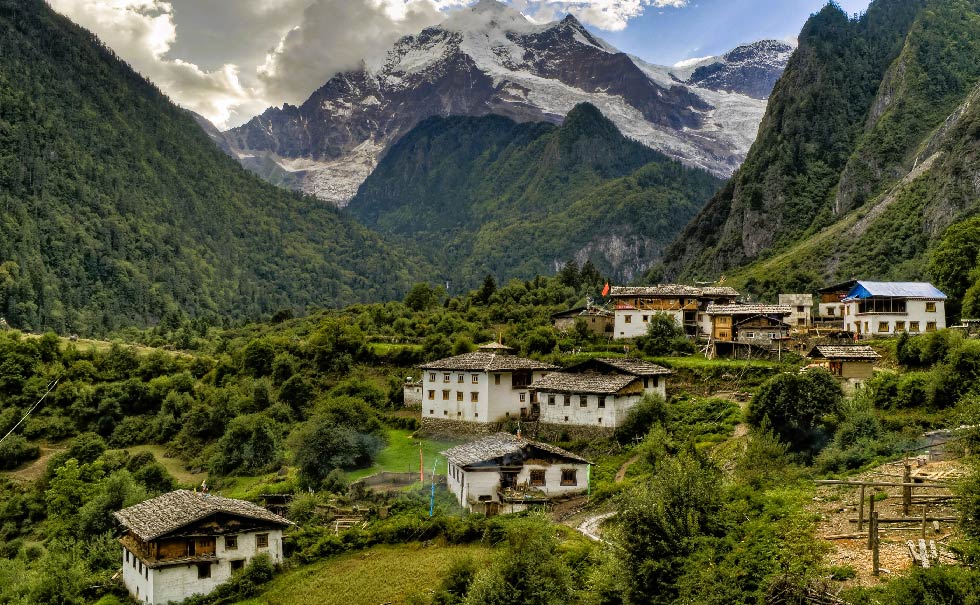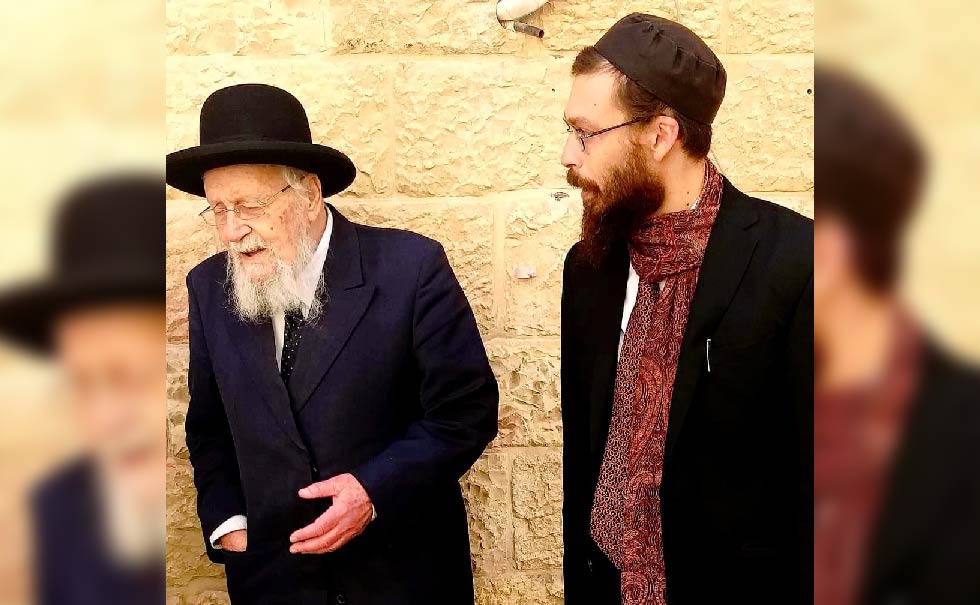Mountains of Dehradun
The mist hangs on the mountains, I bathe in the streams of dream time.
Monkeys watch by the side of the road, cows slumber in the green forest shade.
A humble little river bubbles and flows into moss, clouds stroke the ground with their wispy long tendrils…
As I drive around in the shadow of the mountains up here in Dehradun, India it is hard not to be awed by the beauty and peace around me. So much of my year has been spent in the large urban city of Manila that to be here in what remains mostly rural India feels freeing and allows my mind to remember the bigger picture.
Our Parsha begins with “See I have placed before you Blessings and Curse….” The key is the word “See”, so much of life depends entirely on the perspective with which we approach our lives: Can we see the Mitzvot and our spiritual obligations as Blessings, or do they remain a burden in our eyes.
My time up in the mountains comes to teach me a different lesson, not of books, traditions or theology:
For the first time in perhaps years, I feel stirred towards poetry: to simply accept the immediacy of being – in some schools of thought this experience is called “meditation”, but too much imagery and connotation is sometimes associated with that particular word used to describe “awareness of being itself”.
It is perhaps an area that our tradition does not so often focus upon, that beyond our requirements to perform the Mitzvot and to delve into Torah Study there is a need to create an intimacy with Hashem within our present consciousness – amongst earlier generations and today amongst some Tzaddikim the practice of wearing Tallit and Tefillin throughout the day was meant to achieve a feeling of constant connection with Hashem: but beyond this it is a practice that must be cultivated, we must learn to include Hashem in our day to day experiences and remain in a state of remembrance and awe of Him.
The mountain in its unchanging stillness towers above me, it produces within me strong emotions and a sense of frailty, the mountain sees eons of time pass without much change whereas I at best have 120 years to experience this world with its absolute promise of many changes to myself as an individual and those around me, long after I am gone and my influence forgotten the mountain will still remain.
Hashem in a larger sense remains unchanged by my existence and the creation of His world, so often throughout the Psalms and in other parts of the Tanakh, Hashem is referred to as the “Rock” and at this moment the metaphor seems both apt and powerful.
The larger question in Jewish education is not only about Torah, Hebrew, history and songs – it firstly about identity both in a national sense and also in a spiritual sense developing the individual’s relationship with their Creator.
As we have moved from the fields and villages into the city, from ancient times to this post industrial reality many things have changed and indeed many things in terms of our quality of life have drastically improved, we may not realise it always but many of the greats of our people lived without water systems, soaps and basic hygiene, access to medicine and dentistry – they were limited in what they could purchase except from that which was readily available, knowledge of other cultures, religions and history was greatly limited. For this we should be highly grateful, however we have also in many ways become detached from the patterns and cycles of life and nature.
As this disconnection grows we are experiencing in our times a magnitude of issues caused by pollution and a rise in global temperatures – we have put “man on the moon” in terms of our technological advancement, but it has come at a great cost in terms of our natural resources and damaged our ecosystem immensely.
The obvious response to this is to feel a sense of urgency, despair and perhaps even helplessness – to be in the shadow of the mountain of trash and waste that we as a species have created.
However, this is not the Jewish response, from my location down here in the Dehradun valley I gaze up and seen planted high up in the distance a lonely flag, this is a symbol of an individual’s success in climbing up beyond the mist, beyond adversity and hardship and against the natural will to surrender.
Faith is more than a theological statement of belief in a Creator, although this is of course a prerequisite in our Religion, faith is also a transcendent power to believe in better tomorrow, in the better person I can become as an individual, in a better society I can leave to my children and grandchildren and their children after them. Faith as a theological premise is by comparison easy to the belief in people and our unique species.
We can choose to see the blessing and the curse, to admit defeat or climb further – even if all that will be left us, metaphorically speaking, will be our flag upon the mountain, it can still be a profound lesson to those of us still in valley looking upwards and praying for intimate connection with the Divine.
Rabbi Jonathan Goldschmidt 2023 ©




